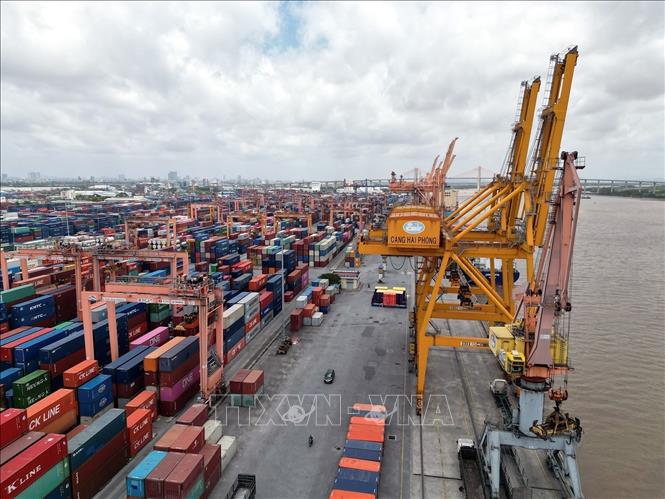
Logistics activities at Hai Phong Port. Photo: Tuan Anh/VNA
This move could affect bilateral trade, requiring the parties involved to find appropriate solutions to maintain stability and ensure common interests. This is the common opinion of the business community in Hai Phong.
Big challenges for businesses and supply chains
Hai Phong is one of the three largest cities in Vietnam, the economic center of the Northern region, always maintaining high socio-economic development. For the 10th consecutive year, Hai Phong has maintained double-digit growth of over 10%/year.
To continuously be in the top of the country's socio-economic development, Hai Phong has many outstanding characteristics and advantages such as modern and synchronous investment in seaport infrastructure, highways, railways, and airports, creating high international connectivity and integration, bringing maximum advantages to investors.
And in particular, in 2025 and in the coming time, Hai Phong has been making all-out efforts to invest in building infrastructure for the New Economic Zone in the South of the city with the orientation of a green, ecological economic zone, closely following international trends on ESG and the goal of reducing greenhouse gas emissions - Net zero along with outstanding preferential policies to welcome large domestic and foreign investors.
With this outstanding advantage, Hai Phong has attracted many large domestic investors and FDI investors from 42 countries and territories to invest in Hai Phong Industrial Park and Economic Zone.
The US move to impose a 46% reciprocal tax on exports from Vietnam is also posing significant challenges for businesses and supply chains in the Port City.
As a business operating in the logistics sector, Mr. Nguyen Hai Lam, Chairman of the Board of Directors of GGI Logistics Company, shared that the US's imposition of reciprocal tariffs on imported goods from Vietnam will have a significant impact on the logistics industry, especially transportation, warehousing and supply chain businesses.
The first impact is increased shipping costs, exporting businesses will have to find ways to reduce costs to offset high tariffs, which may lead to order cuts or optimization of shipping routes.
Next is the reduction in transportation demand. When exports to the US decrease, the demand for freight transport will also decrease, affecting shipping, air and road transport companies.
At the same time, businesses may have to adjust their supply chains, redirecting exports to other markets, leading to changes in seaports, warehouses and distribution centers.
The imposition of reciprocal tariffs on imports from Vietnam by the US will also impact employment. The logistics industry is labor-intensive, and a drop in orders could force companies to cut staff or adjust operations.
According to Mr. Nguyen Hai Lam, the solution to cope with the US imposing reciprocal tariffs on imported goods from Vietnam is that logistics enterprises can seek new shipping routes to the EU, Japan, South Korea... to reduce dependence on the US; increase the application of technology, automate warehouses and negotiate freight rates to reduce costs. In addition, logistics companies can cooperate with export enterprises to find more effective shipping solutions and adapt to fluctuations from the US's reciprocal tariff policy...
Government creates trust and companionship with businesses
According to businesses, the Government’s quick response to the US’s decision to impose reciprocal tariffs is a positive signal, demonstrating flexibility and proactiveness in economic management; at the same time, it helps businesses not only cope with immediate challenges but also restructure towards long-term development.
The Government's quick response has created trust and companionship, businesses feel timely support from the Government, helping them have a clear direction in responding to fluctuations...
Mr. Pham Hong Diep, Chairman of the Board of Directors of Shinec Joint Stock Company (Investor of Nam Cau Kien Eco-Industrial Park) shared that, faced with the news that the US imposed a 46% reciprocal tax on exports from Vietnam, as a business we need to stay calm in the face of this information. The Government and the State will have reasonable foreign policy decisions to enhance Vietnam's position in the world.
Everyone understands how much impact there will be if high export taxes are imposed on manufactured goods, FDI capital flows into Vietnam to produce goods for export to the US will slow down, but Mr. Pham Hong Diep said that investors should trust the Vietnamese Government to negotiate with the US to have fair export taxes and ensure that Vietnam remains a growth pole in the region.
The most prominent evidence is the flexible economy and investment attraction. Vietnam has a stable GDP growth rate and an attractive business environment for foreign investors. FDI capital flows continuously into the fields of manufacturing, technology, and renewable energy, creating strong development momentum.
Vietnam holds a strategic position in the global supply chain. As an important manufacturing hub, Vietnam benefits from the trend of shifting supply chains, as many businesses seek alternative markets to China. Trade agreements such as CPTPP and EVFTA help Vietnam expand its exports to major markets.
The Vietnamese government and businesses are also making efforts to promote digital transformation, helping to improve productivity, reduce costs and optimize supply chains.
Mr. Pham Hong Diep added that we should learn lessons from Singapore, Brazil, or Australia, those countries have signed free trade agreements with the US and are subject to a 10% tax, this is a huge competitive advantage, therefore, according to the proportion of Vietnam's exports of more than 130 billion USD to the US and imports of goods from the US to Vietnam reaching nearly 13 billion USD, certainly the Government, the Vietnamese business community and the FDI business community investing in Vietnam will join forces and make decisions to ensure that the US-Vietnam trade relationship will be a bright spot in the world trade balance.
"Vietnamese enterprises and the FDI business community should believe and join forces with the Vietnamese Government to create this miracle, so that when there are benefits, they must be in harmony, and when there are difficulties, they must be shared, as Prime Minister Pham Minh Chinh said," said Mr. Pham Hong Diep.
Doan Minh Hue (Vietnam News Agency)
Source: https://baotintuc.vn/kinh-te/chinh-phu-tao-niem-tin-va-su-dong-hanh-cung-doanh-nghiepkhi-my-ap-thue-doi-ung-20250405135706655.htm



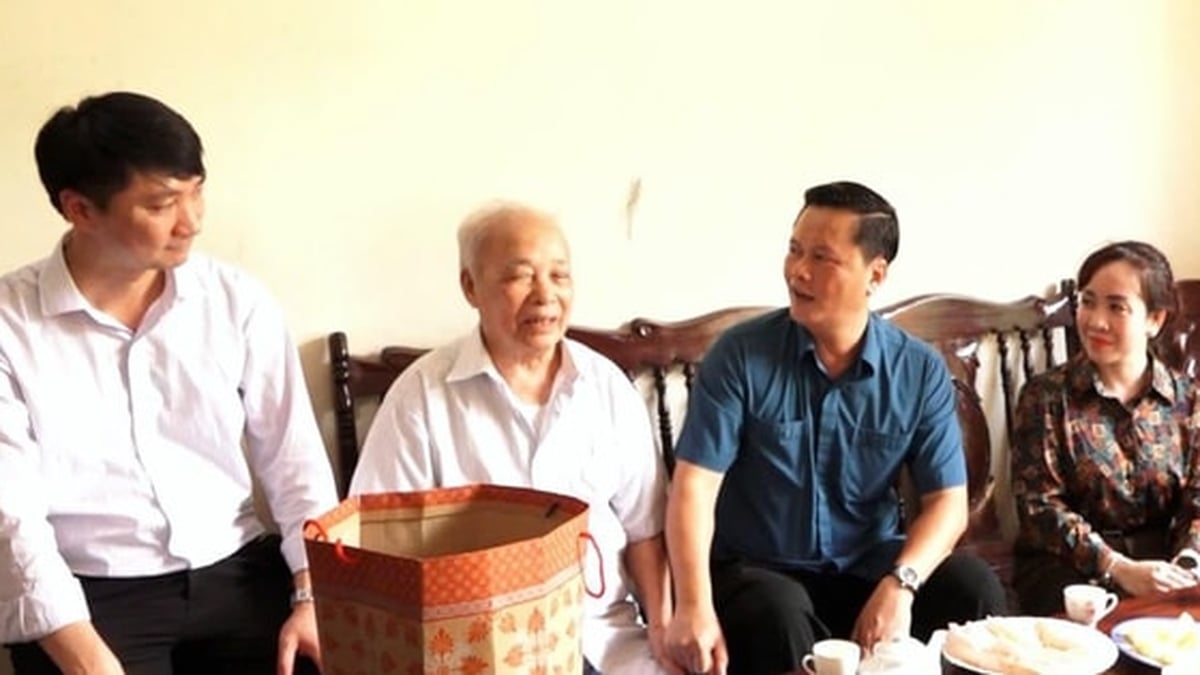
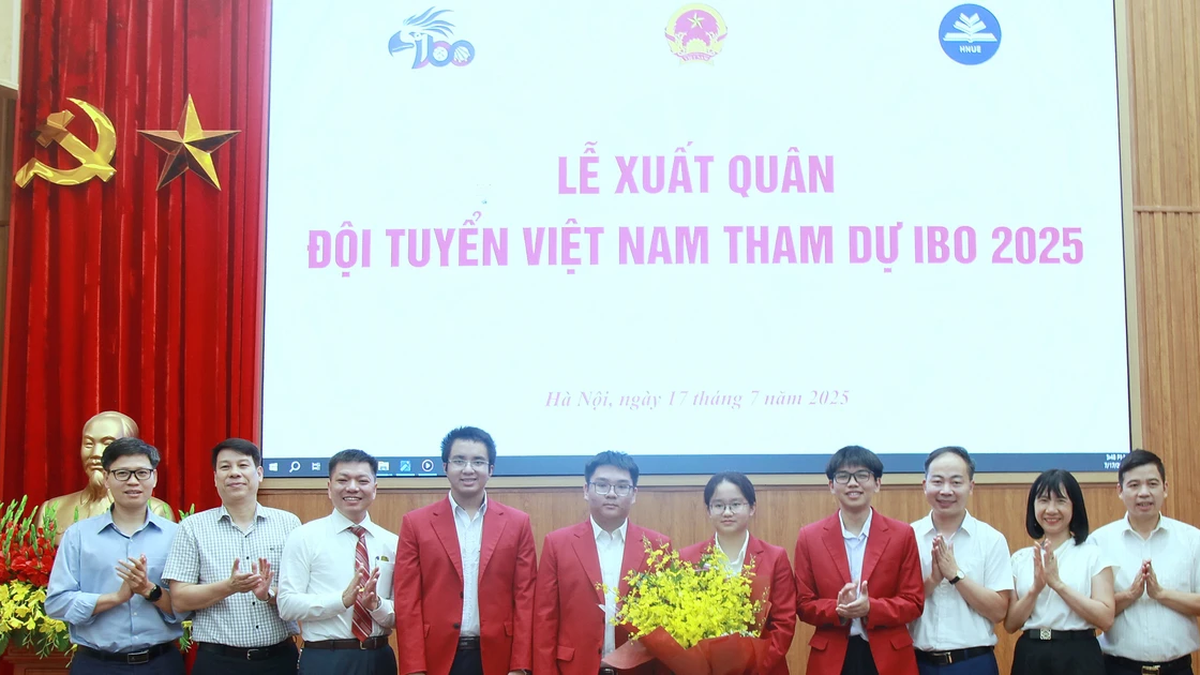
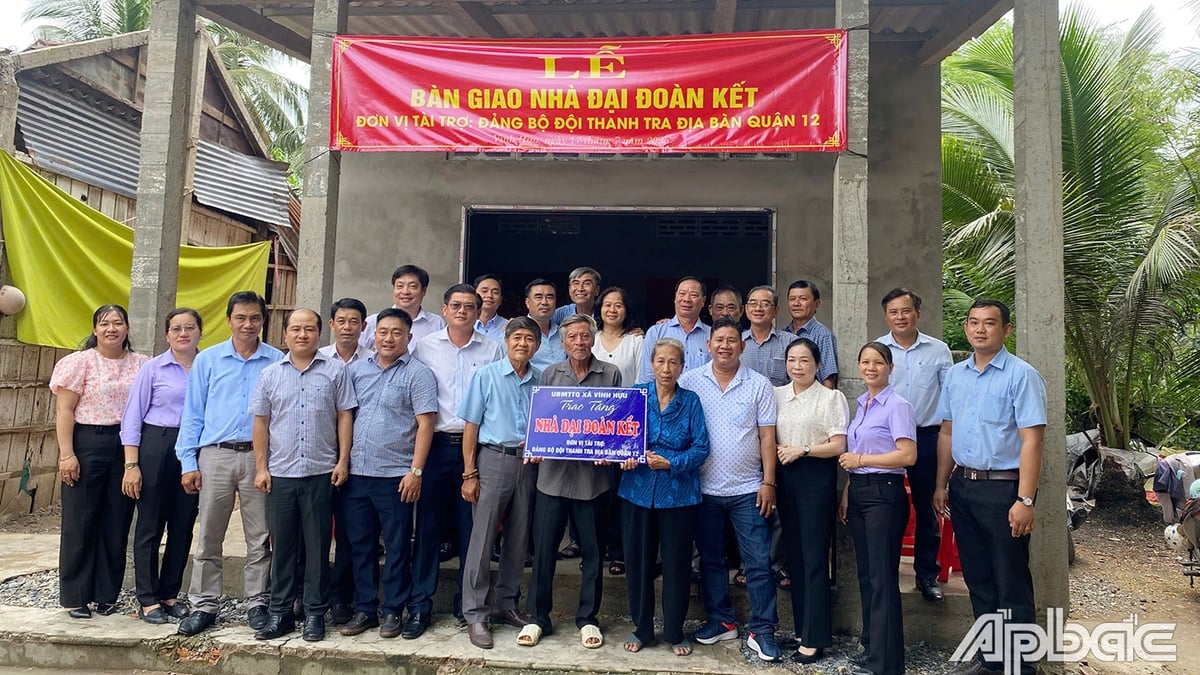

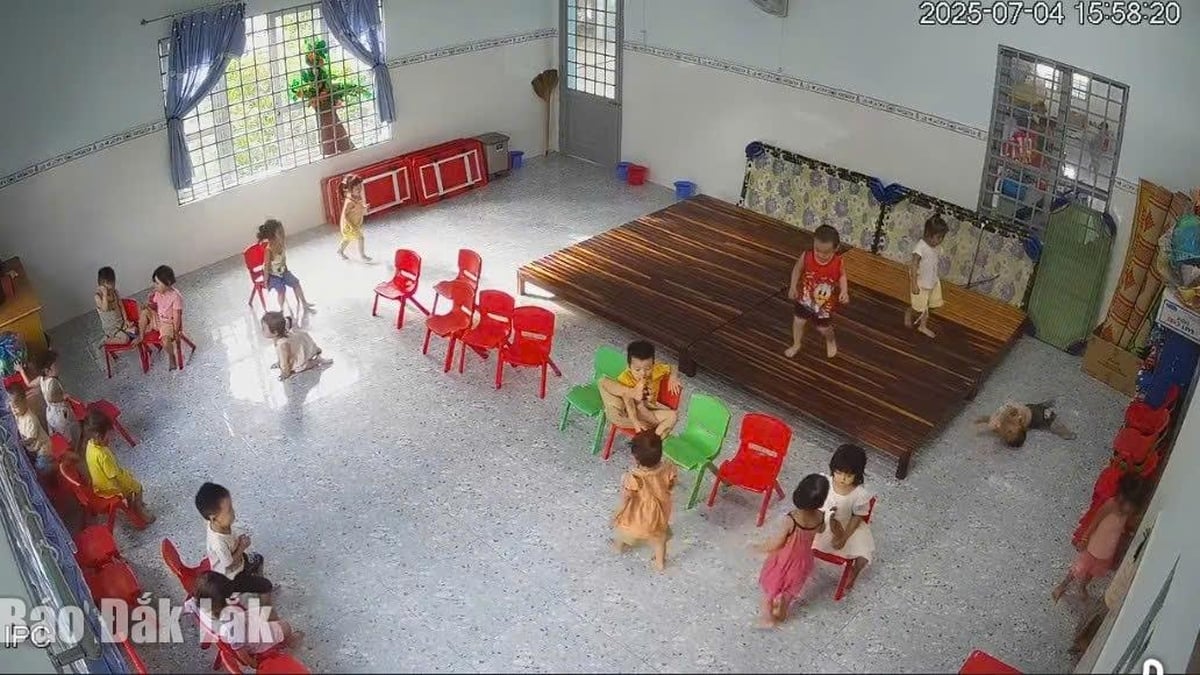





























































































Comment (0)